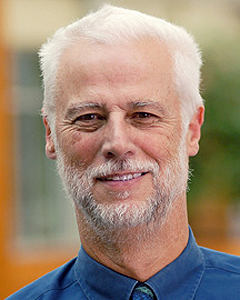 The winter and spring of 2024 has been a time of transition for AccessComputing, as long-time PI Richard Ladner stepped down. Richard has been a PI for AccessComputing since it's inception in 2006. That’s the year that the National Science Foundation established the Broadening Participation in Computing program and the year that Richard partnered with the DO-IT Center to create AccessComputing, which has now successfully won five (thus far) NSF grants to establish and continue AccessComputing.
The winter and spring of 2024 has been a time of transition for AccessComputing, as long-time PI Richard Ladner stepped down. Richard has been a PI for AccessComputing since it's inception in 2006. That’s the year that the National Science Foundation established the Broadening Participation in Computing program and the year that Richard partnered with the DO-IT Center to create AccessComputing, which has now successfully won five (thus far) NSF grants to establish and continue AccessComputing.
On Wednesday, May 9, family, friends, colleagues, and students gathered in the Amazon Auditorium of the Bill & Melinda Gates Center for Computer Science and Engineering for Richard’s departing colloquium The Impact of AccessComputing. In setting the stage for AccessComputing, Richard spoke about his initial involvement with Seattle-area resources for members of the Deaf community, and his motivation for that involvement, having been born to Deaf parents and raised in Deaf culture. He shared how he became involved with the DO-IT Center, expanding his experience and understanding of disability by working with DO-IT Scholars and then, starting in 2007, with both AccessComputing for students with all disabilities, and the Summer Academy, which ran from 2007-2013, which brought groups of 10-17 Deaf high school and college students to the UW campus for several weeks of intensive computing immersion. Many of the Summer Academy students went on to join the AccessComputing Team, which now counts several thousand student and alumni.
After setting the stage with this history, Richard spoke movingly about the impact that nearly 18 years of AccessComputing have had in both academia and computing industry. He talked about the effect that AccessComputing has had on the expansion of teaching accessibility in computing science and engineering courses, the networks developed by and in collaboration with AccessComputing that have helped to expand the work, and the institutional and industry changes that have occurred as a result of these partnerships as well as student successes. Like every good scientist, Richard wrapped up with discussion of limitations and implications for future work, noting the challenges that remain to be addressed in ensuring that people with disabilities are included in the ever-changing computing fields.
Over his years of work, Richard has become known as “the conscience of computing," reflecting the fact that he’s earned the many awards he’s received for his work with AccessComputing and accessibility research. Included among them are the 2020 National Science Board Public Service Award, the 2016 SIGACCESS Award for Outstanding Contributions to Computing and Accessibility, the 2014 SIGCHI Social Impact Award, and the 2008 Computing Research Association A. Nico Habermann Award. He is a Fellow of the ACM, IEEE, and AAAS.
Viewers can find a captioned version of The Impact of AccessComputing, as well as a signed and captioned version, on the University of Washington Paul G. Allen YouTube channel.